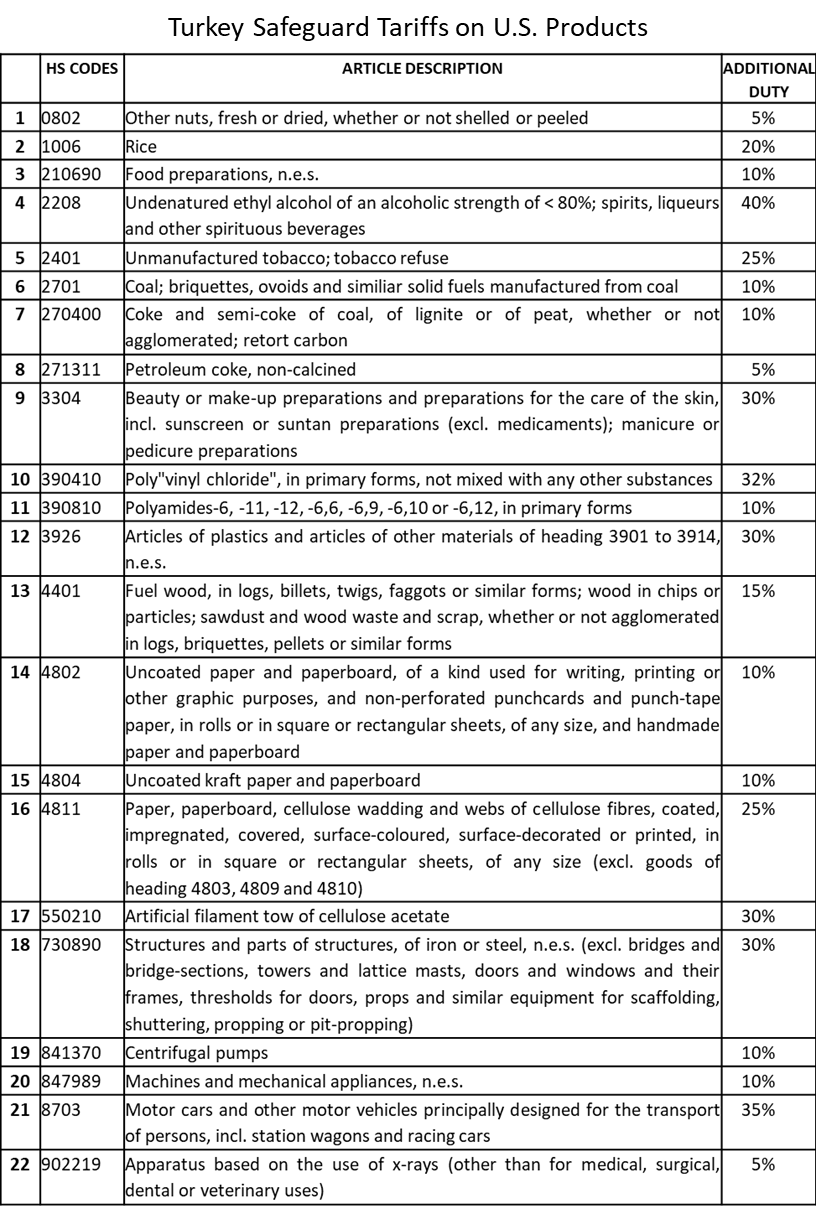Government/Policy

June 22, 2018
Turkey Latest to Retaliate to U.S. Tariffs
Written by Sandy Williams
Turkey imposed retaliatory tariffs Thursday on $1.8 billion of U.S. goods in response to Section 232 tariffs on steel and aluminum.
“Turkey is committed to active, robust and reciprocal trade relations with the US — but with the understanding that fairness cannot be one-sided,” Economy Minister Nihat Zeybekci said in a statement. “We cannot and will not allow Turkey to be wrongly blamed for America’s economic challenges.”
The measures, as submitted to the World Trade Organization on May 22, include rice, make-up, liquor, cars and coal.








